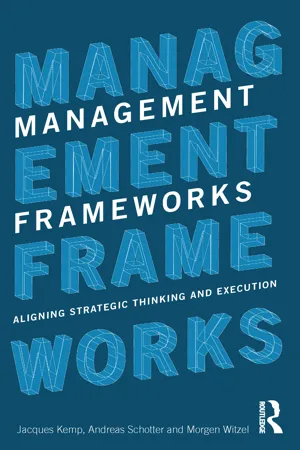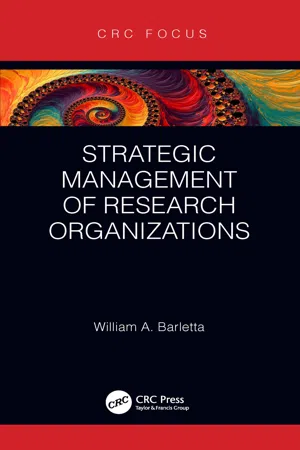Financial Managers
Financial managers are responsible for overseeing the financial health of an organization. They analyze financial data, create financial reports, and make strategic decisions to maximize profitability and minimize risk. Financial managers also develop long-term financial goals and strategies, manage investments, and ensure compliance with financial regulations.
6 Key excerpts on "Financial Managers"
- eBook - ePub
Performing Arts Management (Second Edition)
A Handbook of Professional Practices
- Tobie S. Stein, Jessica Rae Bathurst, Renee Lasher(Authors)
- 2022(Publication Date)
- Allworth(Publisher)
...Those responsible for carrying out your plan should keep you informed of changes so that you have the ability to make other adjustments in order to keep within your financial parameters.” 6 Financial Managers are the fiscal stewards of an arts organization, keeping the budget balanced while ensuring that the organization behaves ethically and responsibly. As Peter Gee, former vice president of finance and operations for the Brooklyn Academy of Music (BAM), states, “The finance department does not spend money or create revenue. It is our responsibility to manage the budget. We implement processes that help keep the information flowing into the office so that we can look into all the various divisions of the organization and make sure that the expenditures [expenses] and revenues as budgeted are on track. If there are shortfalls in revenue or overages (larger-than-expected amounts) in expenses, we make sure they are identified as soon as possible, so that remedies can be taken to address and correct them, and the budget is balanced at the end of the year.” 7 Financial Managers allocate resources in the most efficient manner and in the manner most consistent with the goal of the organization, whether that goal is making a profit via a commercial enterprise or realizing the primary mission of a nonprofit institution. The financial manager looks at all of the goals of the organization, identifies the cost of achieving those goals, and determines the feasibility of the organization’s current plan to realize its goals. 8 Financial Managers may also be called upon to help adjust these plans as the financial situation of the organization changes, as Peter Gee explains. “After 9/11, revenue dropped dramatically, but expenses were the same. The executive staff needed to find a way to balance the budget...
- eBook - ePub
- Brümmer LM, Hall JH, Du Toit E(Authors)
- 2017(Publication Date)
- Van Schaik Publishers(Publisher)
...Efficient management in this respect ensures reasonable liquidity and profitability for the organisation. The financial manager As in the cases of other departmental managers, the financial manager or director generally holds a senior position in the organisation, and is sometimes accountable only to the chairman of the board of directors. His task is to perform the functions of financial management as described in the definition of financial management in the previous section. 9 The financial manager’s principal aim is to maximise the owners’ wealth or interest in the organisation (in companies, the owners would be the ordinary shareholders). It is important to note that this aim is not maximising profits but rather the owners’ wealth or stake in the organisation. Maximising profits or net income is a short-term concept. If an organisation were to exert all its efforts towards maximising profits, its customers would soon object to being exploited and take their patronage elsewhere. The organisation in question would therefore soon be out of business. On the other hand, maximising wealth has a long-term connotation because owners’ wealth originates as a result of increasing the value of the organisation through persistent efforts to make its shares so popular that investors would constantly be raising their value through increased bidding for these shares. Remember too that the individual who manages his own private financial affairs is also a financial manager, and would be fulfilling the functions of financial management mentioned in the previous section. The terms “director” and “manager” Since most people tend to look upon a business or organisation as being a company, the terms “director” and “manager” have been used in this book. Do not be confused by this. Both terms are equally applicable in a proprietorship (a one-man business) and a partnership...
- eBook - ePub
Management Frameworks
Aligning Strategic Thinking and Execution
- Jacques Kemp, Andreas Schotter, Morgen Witzel(Authors)
- 2012(Publication Date)
- Routledge(Publisher)
...Misreporting its results or financial position, as happened with Enron and Madoff, can easily lead to a catastrophic loss of reputation. In today's world there are plenty of eyes waiting to scrutinize a company's accounts and financial reports, and pounce on any mistake. Good financial management and good reputation management are closely linked. Managing finances and financial information The financial driver of the management framework needs to cover two separate related issues, the management of financial assets and liabilities themselves, including traditional corporate finance functions such as treasury and M&A, but also the control risk, audits and dissemination of financial information. Both are equally vital. The first makes it possible for the company to operate by providing financial resources where and when they are needed and also by monitoring revenue and returning profits to shareholders so as to meet their needs. Managers also have responsibility for managing surplus cash by investing it, safely and yet with good returns. At large international companies this is done by specialists focusing on international cash management, netting surplus balances in one country or business unit with shortfalls in other units. This will also reduce foreign exchange risk and interest costs. The second function, financial reporting and control, makes it possible for the company to understand its present situation, to anticipate and to plan. One of the first questions asked when considering a strategic option, new initiatives or contemplating investments should be: Can we afford it? The framework needs to make certain that the answers to these questions are reliable, quick and easy to understand. Another important task of finance is control. Big companies have hundreds of controllers and internal auditors to verify whether reporting is done properly, but even very small ones generally have one or more people associated with this function...
- eBook - ePub
- Vibrant Publishers, Kalpesh Ashar(Authors)
- 2019(Publication Date)
- Vibrant Publishers(Publisher)
...Introduction to Financial Management Financial Management is a field of finance that uses a company’s financial information to make decisions. The diagram below shows the steps in the analysis of financial information. Financial Accounting is a field that deals with the preparation of financial statements (refer the book “Financial Accounting Essentials You Always Wanted to Know” of this series). Financial Management uses this information to first analyze the company’s health and then to take appropriate decisions. Consider, for example, the Balance Sheet and Income Statement of two companies as below: From the above financial statements, it is evident that both the companies have the same Net Income ($12 million). Following questions arise: a) As a banker, is this information enough to extend a loan to both the companies? b) As an investor, Is this a good return on investment? c) As a manager, are these returns the best in the industry? Just by looking at the individual numbers in the financial statements it is not possible to answer the above questions. In order to answer them one needs to do financial statement analysis that looks at a combination of numbers that provides more information. This analysis compares a combination of financial numbers (ratios) over a period of time for a company and also compares these with other companies in the same industry. This analysis is done using two tools given below: a) Ratio analysis b) Common-size financial statements Using the data from the financial statement analysis companies make appropriate decisions to ensure that they meet their ultimate business objective – maximization of their stock price. The decisions are taken in the following areas: a) Cost of Capital b) Capital Budgeting c) Working Capital Management d) Capital Structure & Leverage e) Dividend Policy Finally, companies use Pro forma financial statement to do a what-if analysis and estimate their financial statements for the next period (quarter/year)...
- eBook - ePub
Introduction to Business
A Primer On Basic Business Operations
- Patrice Flynn(Author)
- 2019(Publication Date)
- Business Expert Press(Publisher)
...Every business needs money to succeed, be they large transnational corporations, mid-sized established businesses, or new small enterprises. We need money to start a business, stay in business, and grow a business. Money is the oil that greases the wheels of business. We define business as an organization, comprised of people, who produce goods and services, to be sold, in order to earn a profit, distributed to stakeholders. The finance functional area gets to the heart of earning a profit, which is where we begin. Careers in Finance One of the benefits of becoming a financial expert is the array of jobs available across all industries. In the private for-profit world of business, finance is a requirement to succeed as a chief executive officer (CEO) today. This was not necessarily the case in the past when an individual who was well-versed in a particular product or service could establish and run a business without having a lot of knowledge about finance, which could be handled by associates skilled in finance. This is no longer the case. Every CEO today starts the day combing through financial data pertaining to one’s business and industry. Hence, studying finance is a must for those seeking to be a chief executive one day. Chief financial officers (CFOs) are also responsible for the financial functioning of business. The CFO works nonstop on matters related to money, banking, and financing of the business. That said, given the data intensity of business today, I learned being a CFO that we are privy to an enormous amount of information that goes beyond just finance, to include strategy, operations, human resources, and logistics. Thus, while overseeing the finance department, the CFO plays a controlling role in broader aspects of a business...
- eBook - ePub
- William Barletta(Author)
- 2019(Publication Date)
- CRC Press(Publisher)
...Financial Management 6 The previous chapter emphasized that crafting a strategy only establishes a picture for a possible future for the enterprise under the assumptions that sufficient tangible resources (1) exist or can be obtained, (2) can be made available to implement the strategy, and (3) can be used to conduct the operations of the organization in a manner consistent with the strategy. Item 1 requires a sound financial estimate, while items 2 and 3 require a financial plan. Having the plan is not sufficient; the organization also needs a highly competent resource management and tracking infrastructure that can ensure the efficient use of available resources. To put it simplistically, the financial plan is more than the CEO giving every sub-unit manager lab space and his or her own checkbook. As with any other planning exercise, the first step in crafting the strategic financial plan is assessing the present financial status of the enterprise with brutal honesty. At every level of the organization, managers must assess the quantity and quality of their suite of resources relevant to getting their respective jobs done and must report the status of their resources at frequent intervals. Each form of tangible resource requires an expertise and appropriate tools: Funds ⇒ Financial officer to produce accounting reports and financial forecasts Time ⇒ Project manager to create work plans and measures of progress Appropriate staff ⇒ HR expert to generate activity reports and to schedule interviews, performance evaluations, and employee counseling Capital equipment ⇒ Super-technician to schedule operations and maintenance and to track work orders Space ⇒ Coordinator and negotiator to maintain floor plans and conduct inspections Institutional infrastructure ⇒ Senior management to tell you how much of it you can use. A mid-level unit manager needs to be some of each. As a resource manager, s/he will employ a common measure, namely, money—the obvious measure of funds...





